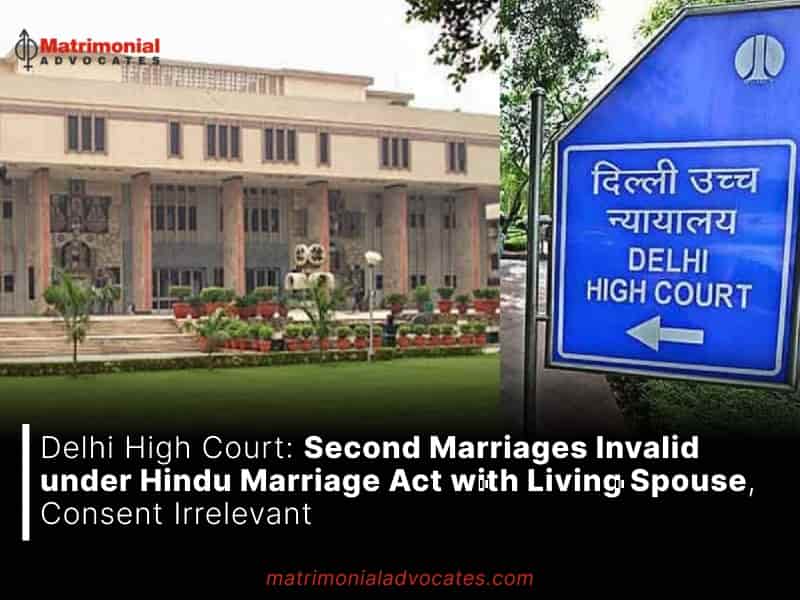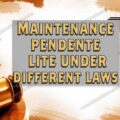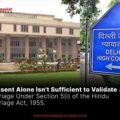
A recent verdict from the Delhi High Court dictates that, in accordance with Section 5(i) of the Hindu Marriage Act, 1955, a second marriage is impermissible if one of the spouses from a previous marriage is still alive. To put it in simpler terms, you cannot enter into a second marriage if either you or your former spouse is alive, irrespective of mutual consent. This decision was rendered by a division bench comprising Justice Suresh Kumar Kait and Justice Neena Bansal Krishna.
“In case, there is a violation of this condition, the marriage is void in terms of Section 11 of HMA, 1955. Once there is a legal bar to the performance of the second marriage, the consent of the parties cannot confer the validity to a marriage held in violation of the condition specified in Section 5(i) of HMA, 1955.”
Section 5(i) states that neither party should have a spouse living at the time of marriage.
The court’s pronouncements were made in the context of their dismissal of a wife’s petition challenging the family court’s determination that her marriage to her husband was null and void.
These matrimonial partners entered into wedlock in 2009. Significantly, the wife had a preceding marriage that culminated in divorce in 2008, followed by an appeal initiated by her former spouse.
In December 2008, the wife conceded her cognizance of her former spouse’s ongoing appeal, notwithstanding the fact that the said appeal remained pending until 2012. Subsequently, due to discord within their second matrimonial union, the second husband initiated legal proceedings to invalidate the marriage, contending that it lacked legal validity due to the continuance of the wife’s first marriage. He argued that the marriage during the subsistence of the first marriage was void ab initio.
The family court, in its contentious judgment, concluded that, in view of the unresolved status of the first husband’s appeal at the time of the second marriage in 2009, the latter was void ab initio.
The bench, in affirming this judgment, underscored the wife’s unequivocal awareness of her former husband’s pending appeal at the time of contracting her second marriage.
“In the present case, the parties had got married during the pendency of the Appeal that was in the knowledge of both the parties. Therefore, in terms of Section 15 of HMA, 1955, it has to be held that the dissolution of the first marriage was not confirmed and the marriage was subsisting on the date of marriage of the appellant with the respondent herein on 28.04.2009 which was in contravention of Section 5(i) of HMA, 1955,” the court said
Moreover, even though the wife had already contracted a second marriage, she pursued financial support from her initial spouse while the appeal was still pending. In September 2009, she was granted this support.
“The very fact that the appellant had not only claimed but also accepted pendente lite maintenance during the Appeal from the first husband fortifies that the marriage was not finally dissolved. The learned Judge, Family Court has, therefore, rightly declared the marriage between the parties as nullity under Section 11 of HMA, 1955,” the court said.





